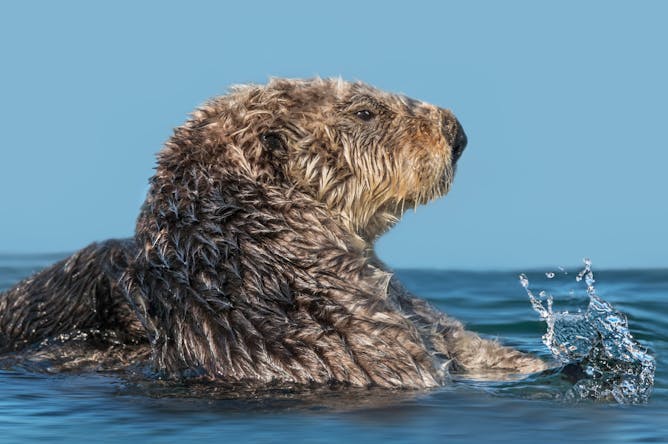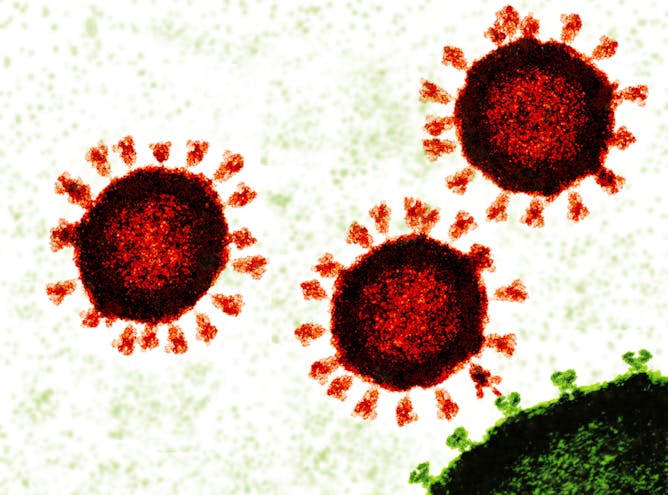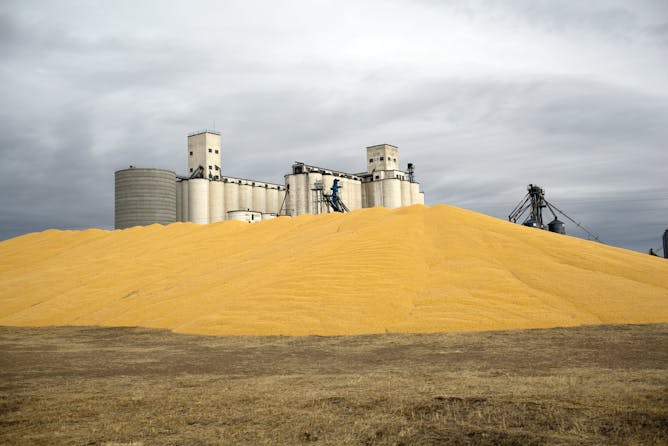|
Sea otters are the smallest marine mammals and have a big appetite, eating about 20% of their body mass per day. But neither that nor their extremely dense fur fully explains how these creatures manage to stay warm in chilly waters. Researchers led by a team at Texas A&M conducted a study to solve this mystery and explain the fascinating biochemistry behind their findings.
The latest data from this week shows that a booster of Pfizer’s mRNA vaccine for COVID-19 appears to offer significant protection from the omicron variant of the coronavirus. But if this variant or another changes enough, mRNA vaccines could be updated to better target a particular variant. University of Washington microbiologist Deborah Fuller, who studies DNA and mRNA vaccines, explains how.
Hopes for the potential of biofuels, or liquid fuels made from plants, were high in the mid- to late 2000s in the wake of federal legislation to greatly expand domestic biofuel production and wean the country from imported oil. With gasoline prices rising, there’s now pressure from the biofuel industry to require even more biofuel use. John DeCicco from the University of Michigan takes the opposite view. He explains how current policies have boosted profits for American corn farmers but failed to reduce greenhouse gas emissions or spur the development of more environmentally sound fuels.
Also in this week’s science and research news:
If there’s a subject you’d like our team of science editors to investigate, please reply to this email.
|

Sea otters are born with a supercharged metabolism.
Adria Photography/Moment via Getty Images
Traver Wright, Texas A&M University; Melinda Sheffield-Moore, Texas A&M University; Randall Davis, Texas A&M University
New research finds that ‘leaky mitochondria’ help keep sea otters warm.
|

Some vaccines use mRNA to make copies of the triangular red spike proteins to induce immunity.
Juan Gaertner/Science Photo Library via Getty Images
Deborah Fuller, University of Washington
The new omicron variant of coronavirus has a number of mutations that may require manufacturers to update vaccines. The unique attributes of mRNA vaccines make updating them fast and easy.
|

Surplus corn piled outside a farmer’s co-op storage facility in Paoli, Colorado.
Robert Nickelsberg/Getty Images
John DeCicco, University of Michigan
The US has required motor fuels to contain 10% biofuels since 2005. As this program nears a key milestone in 2022, farm advocates want to expand it while critics want to pare it back or repeal it.
|
|
|
-
Nabila El-Bassel, Columbia University
Black American women have disproportionate HIV infection rates – in part because of systemic and structural racism in the health care system.
-
Oluwafemi Atanda Adeagbo, University of South Carolina; Xiaoming Li, University of South Carolina
This finding suggests public health efforts will have to address the treatment barriers these men face – like poverty or homophobia – to meet the nation’s goal of ending the HIV epidemic by 2030.
-
Nazanin Andalibi, University of Michigan
New research shows technologies like pregnancy apps do not account for pregnancy loss 72% of the time, causing real harm to users.
-
Thiago Arzua, Medical College of Wisconsin; Esra Sefik, Emory University; Fu Hung Shiu, Emory University; Nuri Jeong, Emory University
Foreign graduate students in the US face a slew of obstacles when it comes to advancing their research careers. Four international Ph.D. students in neuroscience offer some suggestions.
-
Brian Whitacre, Oklahoma State University; Christina Biedny, Oklahoma State University
States have widely different track records on expanding broadband internet access. Here are the ones that could struggle to handle the federal funds coming their way.
-
Roger Bales, University of California, Merced
The State Water Project cut its initial allocations for water agencies to 0% for 2022. A California water expert explains why.
-
Phillip Stalley, DePaul University
China has a tendency to underpromise so it can overdeliver. The UN climate summit in Glasgow may have been the crossroad where it chose a more sustainable path.
|
|